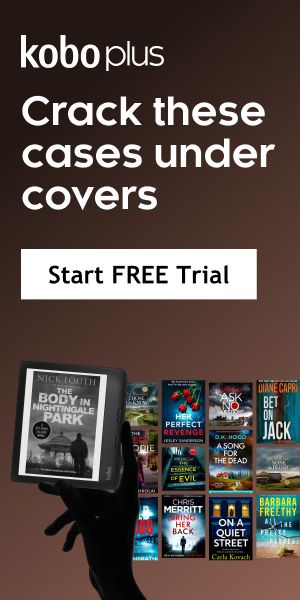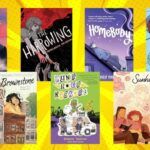
The Books I Think Shaped Me Vs. The Books That Actually Shaped Me
For a long time I kept a selection of books on a shelf next to my bed that I affectionally called my “heart books”. These were the books that I felt defined me as a person, the books that reflected who I was. They weren’t just beloved books, though many of them were certainly that, but books that I felt had shaped me in some important way. To qualify for a place on the shelf, a book had to be not only one I loved, but one that mattered.
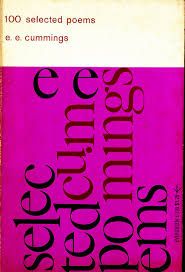
I’m not sure when I got rid of my shelf of heart books. After years of carefully packing and unpacking and rearranging books in each new place, I finally stopped reassembling the shelf. In my current house, I still have a favorites shelf, but my carefully selected shelf of heart books is no more. Partially, this is because the books that matter the most to me have changed as I’ve gotten older. I assembled that shelf in high school, and the books that I can remember being on it were: A Moveable Feast by Earnest Hemingway, 100 Selected Poems by E.E. Cummings, a big hardcover of selected Robert Frost poems (I can’t remember which edition), and A Portrait of the Artist as a Young Man by James Joyce. So. Many. White. Men. It doesn’t surprise me, really, and I won’t deny the real love I felt for those books (and the complicated love I still feel for some of them), or how they affected me as a teenager. But they’re no longer my favorites. They’re certainly not the books that come to mind when I think about the books that define my values, the books that have shaped my life.
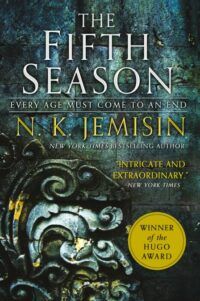
This has me thinking: what are the books I’d put on that shelf if I were making it today? Exile & Pride by Eli Clare, which speaks to my heart and opens doors to new worlds each time I revisit it, a book that has reshaped the way I think about queerness, disability, and home. The Broken Earth trilogy by N.K.Jemisin, a series I love desperately and can’t quite shake out of my consciousness, even though I haven’t reread it in years. Stone Butch Blues by Leslie Feinberg, the first book I read that was queer down to its bones. Ace by Angela Chen and The Argonauts by Maggie Nelson and Blood, Marriage, Wine & Glitter by S. Bear Bergman, all brilliant works of nonfiction that have introduced me to myself. Circe by Madeline Miller because it’s the truest book about being a human woman I’ve ever read. And We Were Eight Years in Power by Ta-Nehisi Coates because his ideas about hope (or the lack thereof) and action have become one of the central tenants of my life philosophy.
It was so easy to write the above paragraph. Those titles were there in my brain, immediately. Looking at them written down next to each other feels right. Of course these are my heart books! I can clearly see their worn spines, I can feel the way my heartbeat quickens thinking about them, I can recite passages from some of them. But have any of these books truly shaped me? Is this updated collection of books any truer than the one I so carefully placed on the shelf next to my bed when I was sixteen? I’m not so sure anymore.
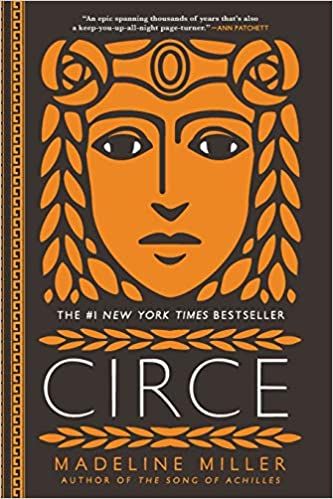
What does it mean to be shaped by a book, anyway? It’s true that Eli Clare and Ta-Nehisi Coates (and many other writers) have changed the way I think about the world. It’s true that I feel every word of Circe in my bones, that I carry it with me wherever I go. It’s true that N.K. Jemisin blew open everything I thought I knew about storytelling. It’s also true that my old copy of 100 Selected Poems is missing its cover and held together by a string. And that my copy of A Portrait of the Artist as a Young Man is the most marked-up book I own, though now I can’t remember anything about the actual novel, only how I felt when I first read it: seen. All of this is true, and yet, I’m no longer convinced that any of these books are have shaped me.
There’s one book that never made it onto that shelf of heart books, though I also read it in high school. I wouldn’t have thought to put it there then, and it certainly didn’t occur to me to include it among my most beloved books today: Writing Down the Bones by Natalie Goldberg.
I can still remember the day I bought it. It was summer. I must have been 14 or 15. I was desperate to get out of my house, so I rode my bike into town and walked into the bookstore. I can’t remember why I picked it up. I don’t think I’d ever heard of it. I was browsing the shelf of books on writing and it caught my eye. I picked it up, read a few pages, bought it. Then I took it with me to a park, read the first few chapters, and opened my notebook to write.
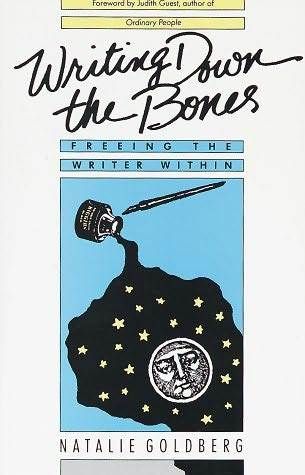
It’s a fairly straightforward writing book. Goldberg’s method is simple: you choose a prompt, set a timer, and write for 10, 15, 20 minutes without picking up your pen. Countless writing teachers have their own variations on this method. Free writing, timed writing, writing prompts: anyone who’s taken a creative writing class will have encountered these things. It’s not earth-shattering. There was nothing particularly new or unusual about Goldberg’s book. I can’t say why it hooked me so deeply. I already knew I loved writing. I started a journal when I was 12. I wrote my first novel in elementary school (unfinished, but at least 100 pages). But Writing Down the Bones changed everything. I went from being someone who enjoyed writing to being a writer.
For most of high school, I got up before school and wrote for 45 minutes. Ran my hand along the list of prompts, set the timer, put the pen to paper. I have boxes and boxes and boxes of old notebooks. I filled them up greedily. I got my friends into it. We’d go to the coffee shop after school, open our notebooks, set the timer, go. Then we’d read aloud what we’d written: no judgment, no critique. We were there to create words and witness them. That was it.
During my teen years and early 20s, this practice was at the core of my identity. It was the one constant. I went to college and dropped out, moved between states, fell in love, got my heart broken, started a business. No matter where I was or what I was doing, I filled notebooks: pick a prompt, set the timer, go. When I eventually started writing fiction, I did the same thing. The I in my notebooks became someone else, but I held to the same practice: no edits, keep the pen moving, go.
This writing practice led me to a writing group in Boston that led me to one of my dearest friends, someone I now consider family. It lead me to my current career. It lead me, in so many ways — concrete ways — to myself. I don’t do timed writing practice every day any more, but I still come back to it when I’m stressed, stuck, fuming, fumbling. Writing Down the Bones is the book that made me a writer. It gave me permission to call myself a writer. It was the first identity I chose that mattered to me. And while it’s not as central to who I am now as it once was, it is the thing that has made me who I am. Becoming a writer allowed me to become so many other things: an activist, a business owner, a farmer, a baker. On the surface, these things don’t have much to do with writing. But writing is where I found my confidence. It’s where I learned to make space for myself. It’s where I became curious about the world. It’s where I got messy and angry and loud. From that, everything else has followed.
Perhaps Writing Down the Bones was just too deeply enmeshed in my sense of self for me to place it on that beloved shelf so soon after I found it. These days, I hardly think about it. There are so many world-shattering, mind-expanding, door-opening books out there. I’ve read many of them, and I look forward to reading many more. The books I put on that heart shelf, whether physically or just in my mind, are going to go on changing for my whole life. Books are going to keep challenging me, inspiring me, changing the way I think about myself and the world. But from now on, when someone asks me about the books that have truly shaped me, the books that have had the deepest, most measurable impact on who I am — I’m going to start telling the truth. There’s only one.


